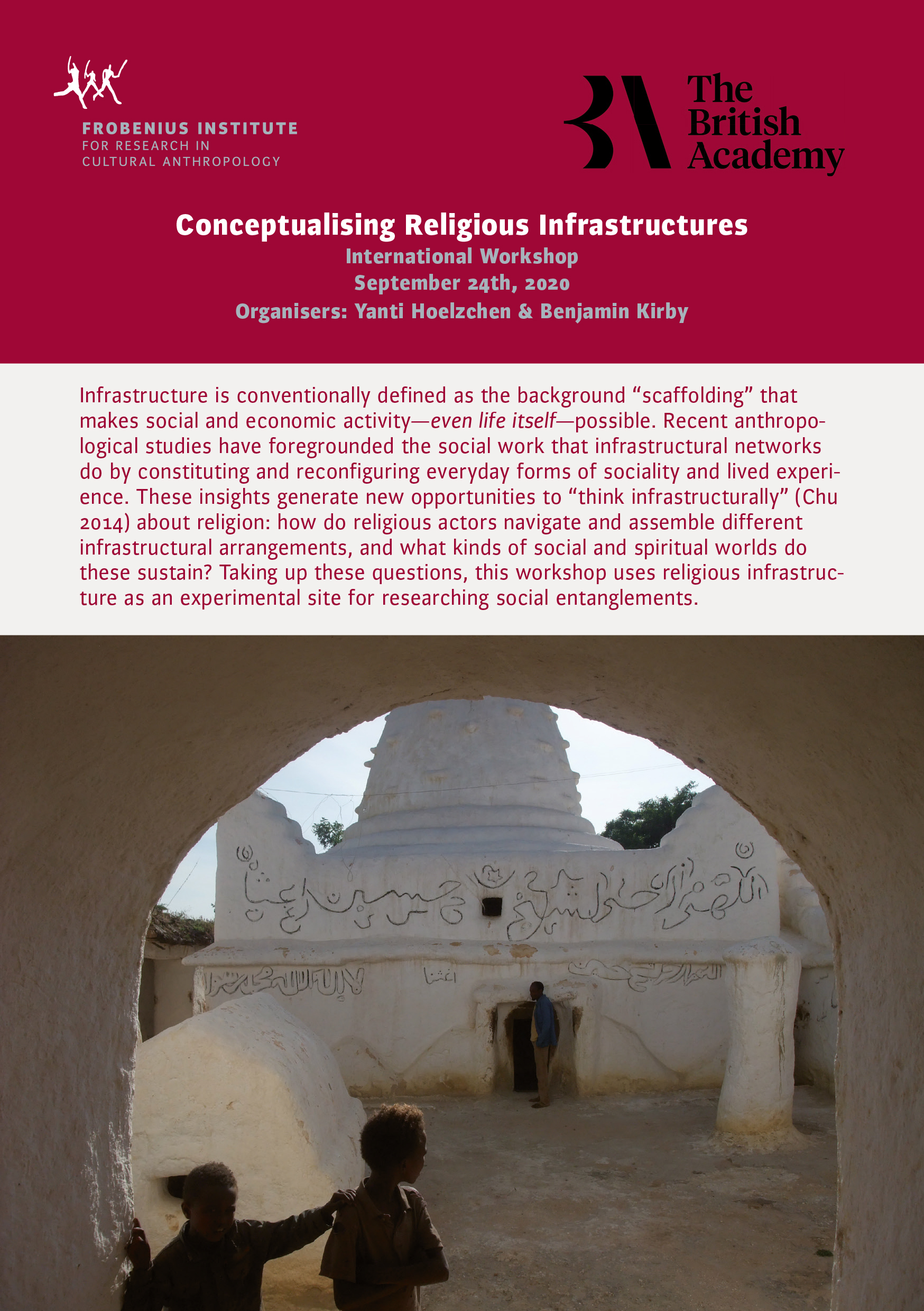 Am 24. September 2020 findet der online Workshop "Conceptualising Religious Infrastructures" statt, organisiert von Yanti Hölzchen (Frobenius-Institut) und Benjamin Kirby (University of Leeds).
Am 24. September 2020 findet der online Workshop "Conceptualising Religious Infrastructures" statt, organisiert von Yanti Hölzchen (Frobenius-Institut) und Benjamin Kirby (University of Leeds).
Um teilzunehmen, senden Sie bitte eine Email an: b.j.kirby[at]leeds.ac.uk
Workshop outline:
Infrastructure is conventionally defined as the background “scaffolding” that makes social and economic activity—even life itself—possible. Recent anthropological studies have foregrounded the social work that infrastructural networks do by constituting and reconfiguring everyday forms of sociality and lived experience. These insights generate new opportunities to “think infrastructurally” (Chu 2014) about religion.
Bringing together international scholars with empirically-grounded contributions from sub-Saharan African, Russian and Central Asian settings, this workshop aims to consolidate a theoretical framework of “religious infrastructures” which extends the concept’s analytical potential. In thinking infrastructurally about religion, we explore how religiously-devised infrastructures intersect with broader infrastructural landscapes, and how—no less than mass transit systems and water supply networks—they sustain shared ecologies and enable socio-material conditions of life support and survival
(e.g. Böhme 2017; Farías/Blok 2016; Larkin 2016). We focus on the agency of religious infrastructures themselves rather than their constituent parts, i.e. specific objects or technologies mediating (religious) experiences (cf. De Vries 2008; Meyer 2015). This multi-scalar and multi-sited notion of infrastructure presents new ways of thinking about the distribution and operations of religious agency, generating alternative units of analysis for the study of religion. It also contributes to wider efforts to dislodge received assumptions about “religions”, or indeed “religion” as a bounded domain which can be understood in isolation from “secular” dynamics (Larkin 2016; Spies 2019).
Overview of the workshop's contributions:
Yanti Hoelzchen (Frobenius Institute Frankfurt) & Benjamin Kirby (University of Leeds)
"Conceptualising religious infrastructure"
Matteo Benussi (University of Berkeley/Ca’Foscari University of Venice)
"Ethical infrastructure in Muslim Russia: the spatiality of halal living"
Murtala Ibrahim (Utrecht University)
"Islam in the digital third space: the rise of cyber Islamic practices in northern Nigeria"
Nelly John Babere (Ardhi University)
"Religious infrastructure, public health, and the politics of urban development: the case of Sinza Ward in Dar es Salaam City"
Peter Lambertz (KU Leuven)
"Enchanted infrastructures: risk, belonging and salvation on Congo’s inland waterways"







